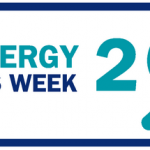Food Allergy Testing: What Does IgE Tell Us?

Food allergy testing is used to measure the level of allergic antibody, known as IgE, to a food suspected of causing an allergic reaction. These blood tests are best used to predict the likelihood of an allergic reaction occurring in people who have had an allergic reaction to the food in question.
Interpretation of serum IgE test results by a board certified allergist with expertise in evaluation and management of food allergy is crucial to an accurate food allergy diagnosis, as false positive test results are common. Simply put, the detection of a positive serum IgE antibody to a food suggests a potential risk of an allergic reaction, but does not predict the severity of that reaction nor the amount of food required to trigger it.
Immunoglobulin E (IgE) is a type of antibody found in the lungs, skin, and mucous membranes. IgE binds to allergens such as pollens, insect venom, and foods, triggering the release of histamine and other substances that can cause allergic reactions ranging from sneezing to wheezing or even anaphylactic shock. In the food allergic individual, tiny amounts of food protein attach to IgE antibodies on mast cells found in these tissues, resulting in the release of histamine and other substances that cause the typical symptoms of an allergic reaction. Symptoms of an IgE-mediated allergic reaction typically start within a few minutes of ingesting the allergenic food. The most common foods accounting for more than 85% of allergic reactions include milk, egg, wheat, soy, peanut, tree nuts, fish and shellfish.
The nation’s major allergy organizations agree on how best to diagnose and manage food allergies. The practice parameters are a state-of-the-art guide on how to detect and treat food allergy. Here’s a helpful list of what to expect as you begin an evaluation for suspected food allergy.
- Description of your symptoms. Be prepared to tell your doctor a history of your symptoms — which foods, and how much, seem to cause problems — and whether you have a family history of food allergies or other allergies.
- Physical examination. A careful exam can often identify or exclude other medical problems.
- Food diary. Your doctor may ask you to keep a food diary of your eating habits, symptoms and medications to pinpoint the problem.
Skin test. A skin prick test can help determine your risk of an allergic reaction to a particular food. In this test, a small amount of the suspected food is placed on the skin of your forearm or back. Your skin is then pricked with a needle to allow a tiny amount of the substance beneath your skin surface. A positive skin test response to a food suggests a potential risk of an allergic reaction but does not by itself constitute a diagnosis of food allergy.
- Elimination diet. You may be asked to eliminate suspect foods for a week or two and then add the food items back into your diet one at a time. This process can help link symptoms to specific foods. However, this isn’t a foolproof method. Psychological factors as well as physical factors can come into play. For example, if you think you’re sensitive to a food, a response could be triggered that may not be a true allergic one. If you’ve had a severe reaction to a food in the past, this method may not be safe.
- Blood test. A blood test can measure your immune system’s response to particular foods by checking the amount of allergic type antibodies in your bloodstream known as immunoglobulin E (IgE) antibodies. For this test, a blood sample taken in your doctor’s office is sent to a medical laboratory where different foods can be tested. However, these blood tests aren’t always accurate.
- Oral food challenge. During this test, done in the doctor’s office, you’ll be given small but increasing amounts of the suspect food. If you don’t have a reaction during this test, you may be able to include this food in your diet again.
Food allergy testing is an important step if you or someone you know suspect food allergies. Rely on the experts who specialize in food and other allergies to recommend your best course of treatment.




